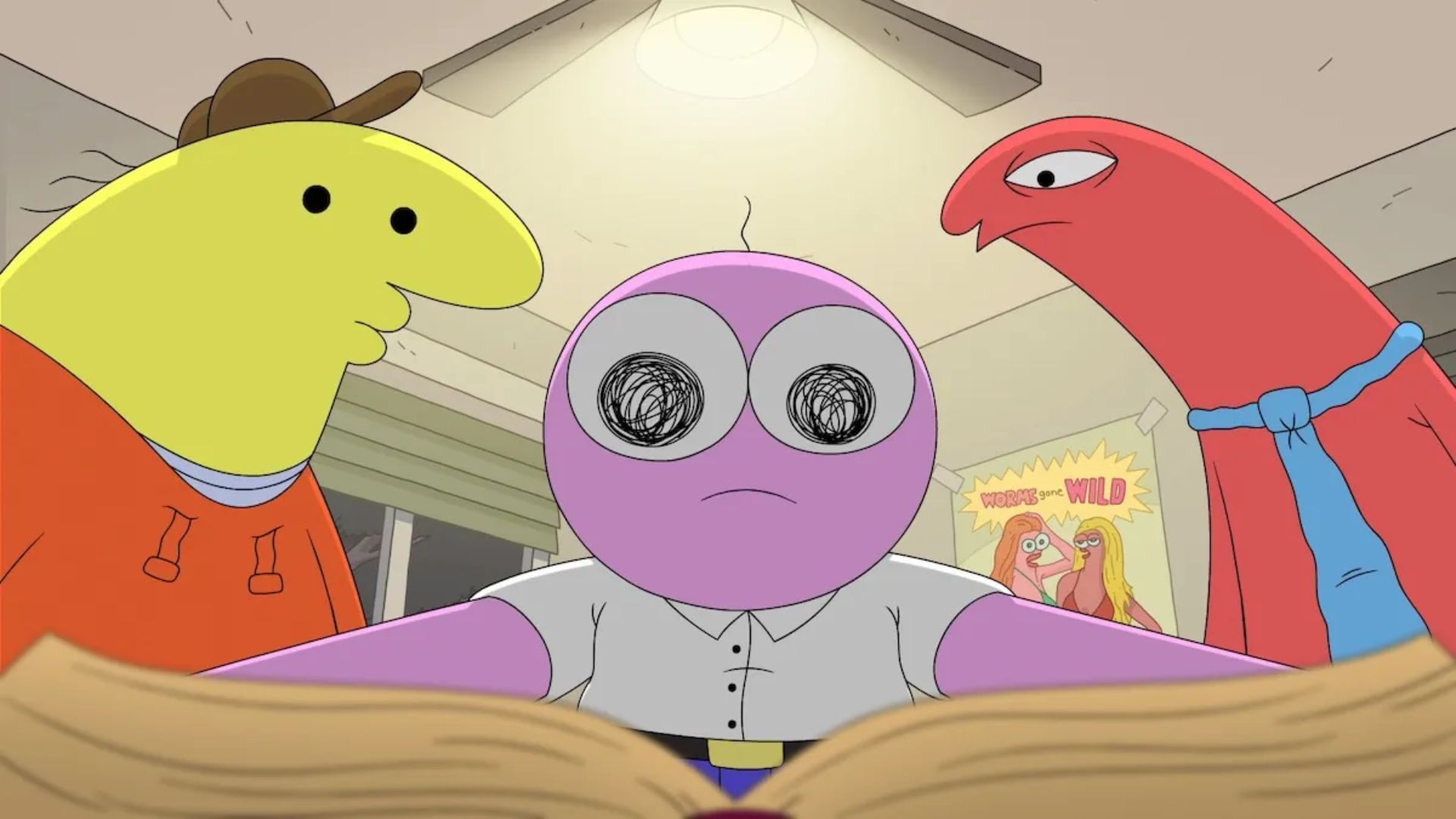**Smiling Friends Season 3 Premiere “Silly Samuel” Debuts with Absurd yet Profound Storytelling**
The much-anticipated premiere episode of *Smiling Friends* Season 3, titled **“Silly Samuel,”** aired on Sunday, October 5, 2025. True to the show’s signature style, it delivers absurd yet meaningful scenarios that keep fans eagerly tuning in.
At the heart of this episode is a new client, Silly Samuel, who is tired of being laughed at and not taken seriously. Charlie and Pim, the familiar faces fans love, are dispatched to help Samuel with his unusual request. However, their mission proves far more complicated than expected.
—
**Spoiler Alert:** The following article contains spoilers from *Smiling Friends* Season 3, Episode 1. Reader discretion is advised.
—
### Silly Samuel’s Struggle for Respect
Throughout the episode, Samuel’s pleas for respect fall on deaf ears. Despite his insistence on being taken seriously, people largely dismiss him as a joke. It’s only after a series of disasters strikes that Samuel gains attention, but even then, it is out of fear — not respect.
Samuel attempts to warn the public about an impending catastrophe, but his clownish appearance and demeanor cause his fears to be ignored. His growing frustration builds as chaos unfolds around him, climaxing with the *Smiling Friends* office building collapsing in a destructive yet darkly comedic fashion. Ironically, it’s this unavoidable disaster that finally forces people to acknowledge Samuel, although reluctantly.
—
### Samuel’s Journey: From Mockery to Desperation
Silly Samuel is portrayed as a figure constantly ridiculed for both his appearance and behavior. When Charlie and Pim are assigned to help, their first solution is to alter Samuel’s look, hoping it will lead others to take him more seriously.
This plan is quickly abandoned when a doctor warns them that changing Samuel’s appearance could be fatal. Undeterred, Samuel’s frustration only deepens, as he realizes that society judges him superficially and treats him differently based on how he looks.
—
### The Farcical Building Inspection: A Side Story
Parallel to Samuel’s storyline is a comedic subplot featuring an overzealous building inspector examining the *Smiling Friends* office. The inspector focuses obsessively on insignificant details, frustrating Mr. Boss and Allan, who struggle to get through the inspection.
One of these “minor” details turns out to have major consequences — a cord that literally holds the office together. While no one else heeds the inspector’s nitpicking, his attention to detail sets the stage for the episode’s chaotic finale. When the building finally collapses, the inspector is caught in the rubble and humorously turns into sand.
—
### The Unheeded Warning
In the episode’s climactic moments, Samuel finally manages to warn a crowd gathered in a park about the looming disaster. Predictably, his warnings are met with laughter and mockery as onlookers assume he’s playing another joke. However, once the office building begins to topple toward the crowd, the situation becomes too urgent to ignore.
The episode ends amid pandemonium, with people scrambling to escape and suffering injuries — a chaotic and unsettling scene wrapped in *Smiling Friends*’ signature dark humor.
—
### Where to Watch
*Smiling Friends* Season 3, Episode 1 is currently available to watch on **Adult Swim**, with next-day streaming access on **Max**.
—
### Related Reads
– [10 Best Characters from Rick and Morty](#)
– [Adult Swim Announces New Programming Block for Classic Cartoon Network Titles](#)
– [7 Easter Eggs You Probably Didn’t Notice in Rick and Morty](#)
– [Why There Won’t Be a Common Side Effects Episode 11? Explained](#)
—
*Silly Samuel* sets a compelling tone for *Smiling Friends* Season 3, blending its trademark absurdity with poignant social commentary on respect and recognition. Fans can expect more unpredictable twists as the season progresses.
https://www.sportskeeda.com/us/shows/smiling-friends-season-3-premiere-ending-explained-does-silly-samuel-finally-get-respect
